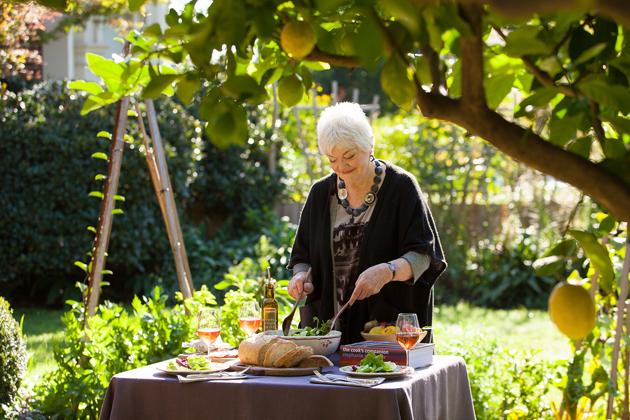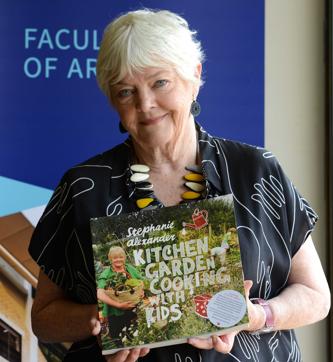‘Young students are concerned about sustainability’
MasterChef Australia regular guest judge Stephanie Alexander says that young people are concerned about reducing waste and are more keen on using local ingredients
Australian food icon Stephanie Alexander is best known as an author, food educator and a food television personality. As a restaurateur, she is known for her eponymous establishment, Stephanie’s Restaurant, which operated in Melbourne for 21 years.

In February 2004, the Stephanie Alexander Kitchen Garden Foundation was established. Her not-for-profit organisation is dedicated to supporting schools so that they can introduce pleasurable food education, and teach students to grow, harvest, prepare and share fresh and delicious food.
She has published 18 influential cookbooks, including The Cook’s Companion, which was named one of her top 10 cook books by celebrity chef Nigella Lawson. Alexander has hosted her own television show, A Shared Table, and was a regular guest judge on MasterChef Australia and Junior MasterChef Australia.
She says, “I have been a really deep practitioner of everything to do with food for the past 40 years.” We got a chance to speak to the star chef, who was in Mumbai recently. She spoke about food sustainability, her journey with food, working with the “next generation”, and cultural diversity in Indian and Australian food.
Excerpts:
Could you describe your journey with food for us?
I started off having a great food childhood, so my interest in the subject started very early. But I didn’t really imagine a career in food professionally, just because food was a hobby for me. Then I went to the University of Melbourne, and got an Arts degree and subsequently worked in libraries for many years. But my interest in food remained. After a few years, I opened my own restaurant and for the next 40 years, on and off, I remained in the restaurant business. I also kept writing about food regularly.
What was the Australian media’s attitude towards food?
It became a new thing to have columns in newspapers and magazines devoted to food. So, I was given a space too. In fact, I was one of the first people to write about food every week. Then, I began writing books, basically cookery books, but always with a story. I tried to tell a story about why this ingredient is influential, where and how it came to Australia, and so on and so forth. I have been keen on understanding the history of it all.

Who was your inspiration?
Well, my mother was an exceptionally good cook. She also understood food as a part of culture rather than just something you ate when you were hungry. She used to talk to me about why she did things. I think that started my interest.
Why did you start the Kitchen Garden Foundation?
There was this trend, all over the Western world, where people started talking about obesity and the poor choices people were making about food, and I felt that the one thing that people were not talking about was the pleasure that goes with good food. So, I decided that I wanted to start a programme for school children called the Kitchen Garden, and it now exists in 2000 Australian schools. Almost 200,000 school children every year are now getting an education in how important good food is, how delicious it can be, and how to produce good food sustainably.
What brings you to India?
My city is an amazing food city and I think people who are potentially coming as students perhaps need to know a little bit more about the environment in which they would find themselves. So, I am here to talk about all that.
Do you find any similarity between young Australian and Indian students?
I am hearing and reading that the concerns of young people here in India, which are similar to the concerns of the youth in Australia. They’re concerned about sustainability. They’re concerned about reducing waste and using local ingredients rather than always buying food from outside.
Is Australia as diverse as India when it comes to food?
Australia, too, is diverse, but it is diverse because our modern history is based on immigration. We have had waves of immigrants arriving since the end of the Second World War — be it the Polish, the Czech, the Lebanese, the Italian, or the Turkish. They all bring with them their own tradition.
Are you still in the restaurant business?
No, I have given that to the young. I ran it for nearly 40 years. I became more interested in the next generation. Running a restaurant was all absorbing, and if you are really involved in everything that goes on to making a restaurant, then it can be very hard on you. When I gave it up, I realised it was about time.
Are you still in the restaurant business?
No, I have given that to the young. I ran it for nearly 40 years. I became more interested in the next generation. Running a restaurant was all absorbing, and if you are really involved in everything that goes on to making a restaurant, then it can be very hard on you. When I gave it up, I realised it was about time.






